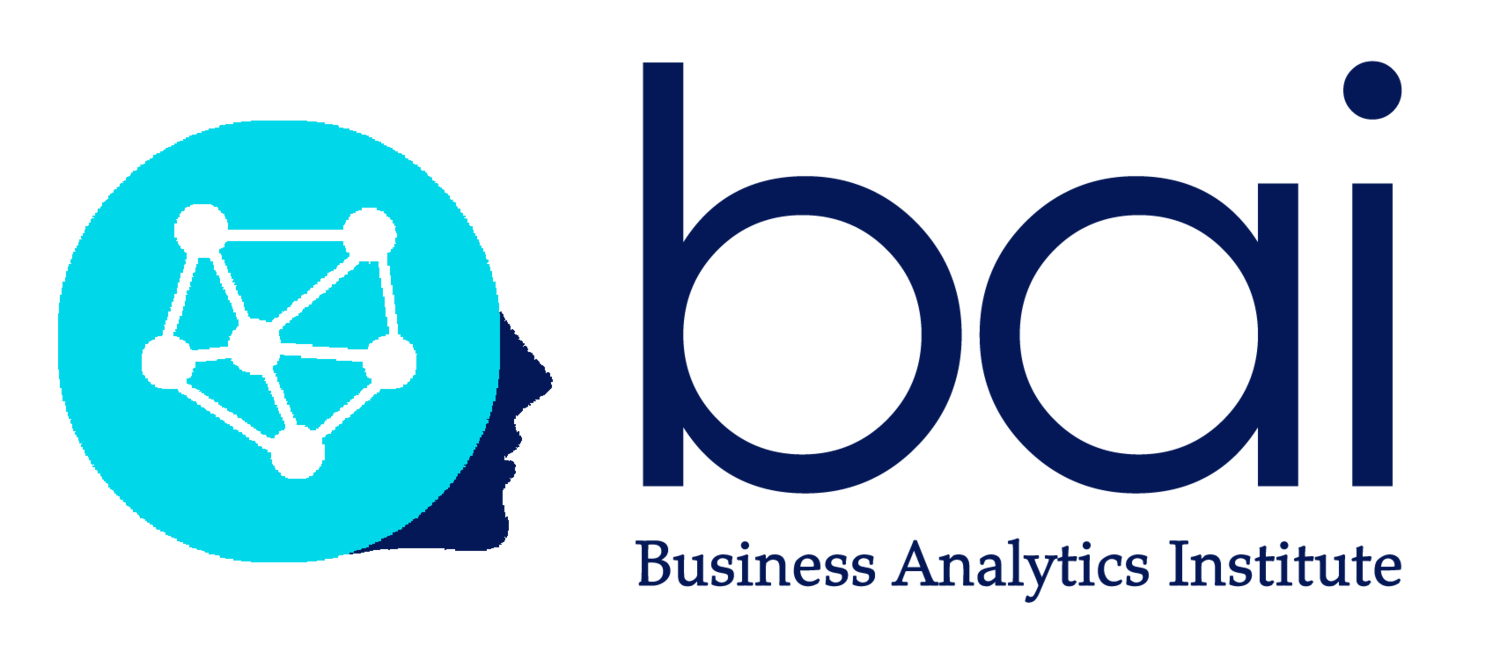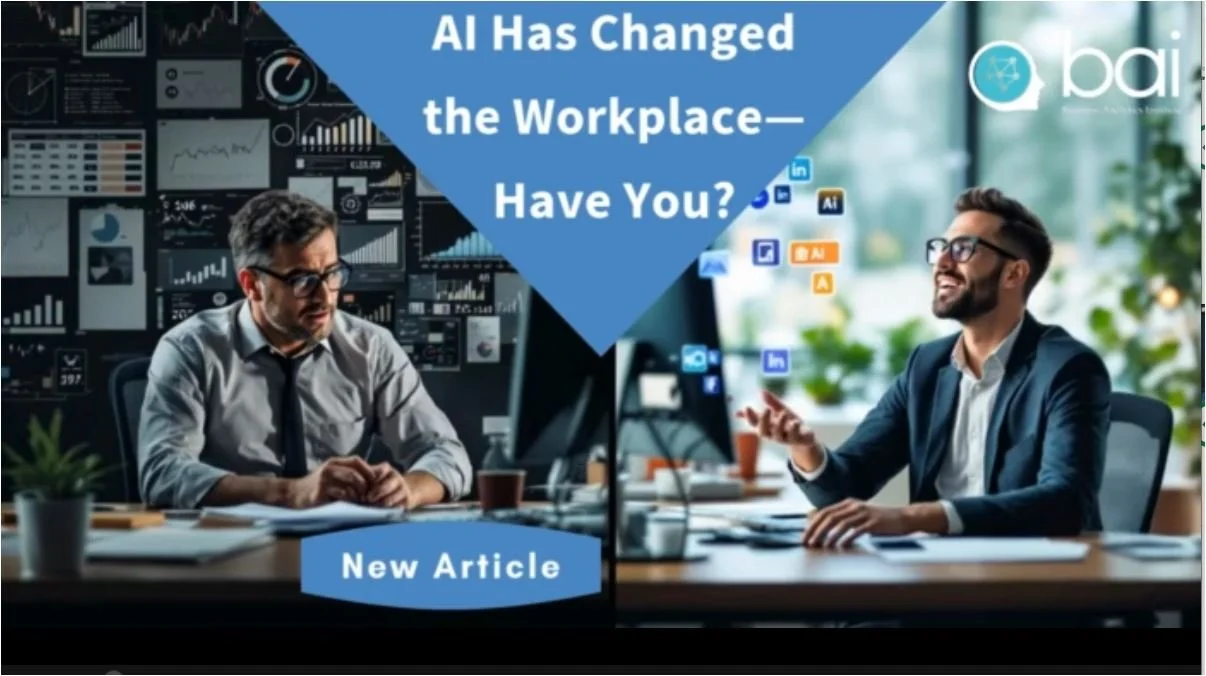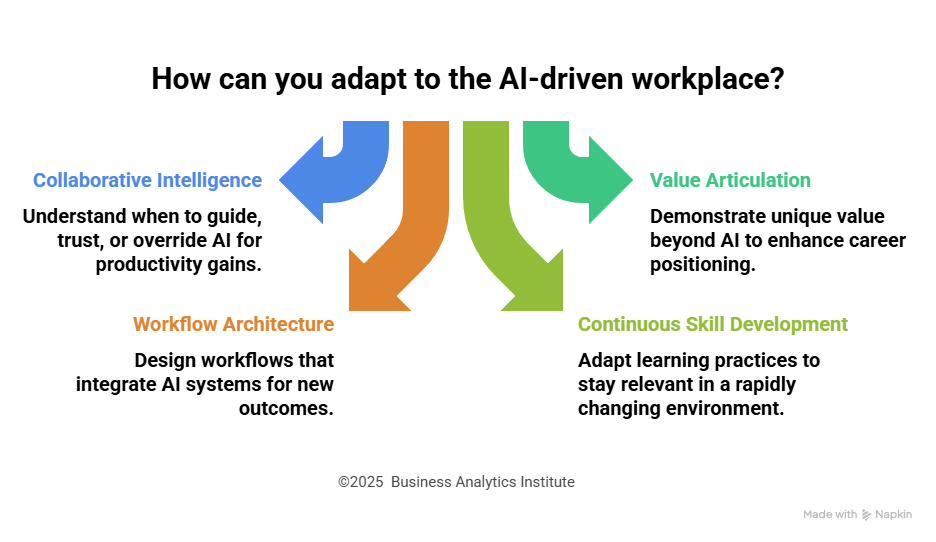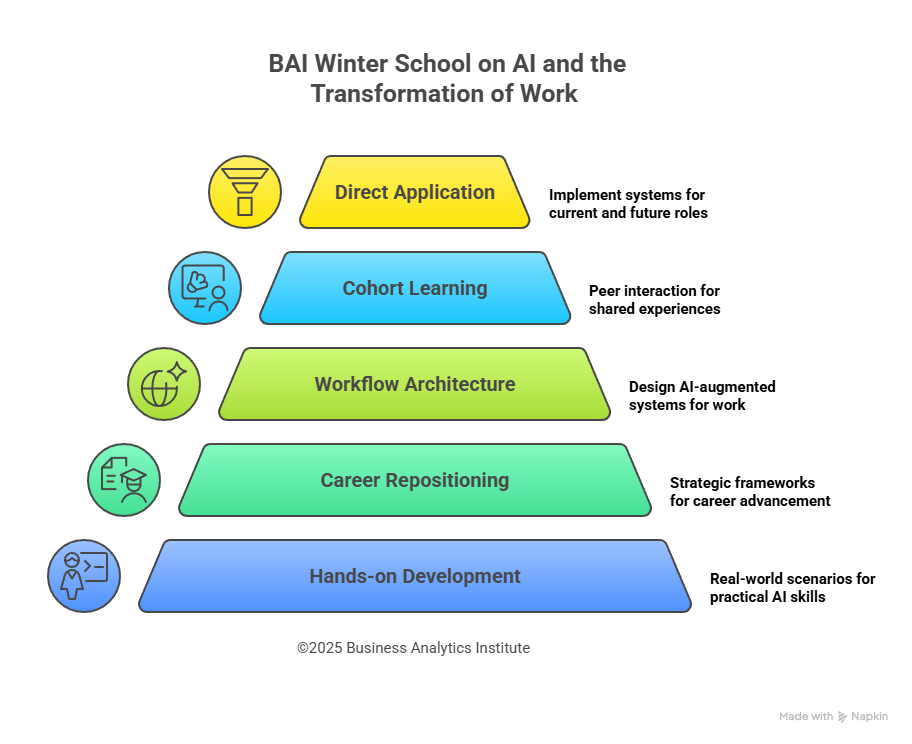AI Has Changed the Workplace—Have You?
The conversation about whether AI will transform work is over. It's already in the (digital) history books.
We've spent the past two years studying how working professionals are navigating this shift—with varying degrees of success. The difference between those thriving and those struggling isn't just about technical skills. It's about focusing on what matters.
Let me show you what I mean and what this should mean to you.
The Writing Is on the Wall
Your colleague just doubled their productivity—and you didn’t notice.
Researchers studied 95 developers using GitHub Copilot. Those with AI assistance completed tasks 55.8% faster than those without, with the performance difference being both statistically and practically significant (95% confidence interval: 21-89%) .
But here’s the crucial insight: The study found that developers with less programming experience, older programmers, and those who program more hours per day benefited the most, with heterogeneous effects pointing toward promise for AI pair programmers in supporting expanding access to careers in software development .
The skill gap is no longer about coding. It’s about AI orchestration.
700 jobs disappeared in 30 days.
Klarna deployed an AI customer service agent in February 2024. Within a month, it handled work equivalent to 700 full-time agents while processing 2.3 million conversations and maintaining customer satisfaction scores on par with human agents .
This wasn’t a pilot program. It was in full production.
But here’s what matters more: By May 2025, Klarna reversed course and began rehiring human customer service agents. The CEO acknowledged that the AI-focused strategy had resulted in lower quality output, admitting they had gone too far in prioritizing cost-cutting over customer value.
The lesson? Implementing AI without considering quality, empathy, and customer experience leads to costly reversals down the road.
Junior workers suddenly performed like veterans.
MIT researchers examined the productivity effects of ChatGPT on 444 college-educated professionals performing occupation-specific writing tasks. Results showed that ChatGPT substantially raised average productivity: time taken decreased by 0.8 standard deviations and output quality rose by 0.4 standard deviations .
More importantly: Inequality between workers decreased, as ChatGPT compressed the productivity distribution by benefiting low-ability workers more. Workers who received a low grade on the first task experienced both increases in grades and decreases in time spent, while workers who received a high grade maintained their grade level while substantially reducing their time spent .
This challenges the traditional career ladder and creates a real need for working professionals at all levels to redefine what they bing to the table.
What Separates Those Who Flourish from Those Who Flounder
After reviewing a myriad of case studies and research papers, we've identified four baseline capabilities that distinguish working professionals who are thriving in AI-driven environments from those who are struggling.
1. Information work isn't valued anymore.
If your primary skill is finding and summarizing information, you're in the highest risk category. AI does this now—legal research, literature reviews, market analysis, customer inquiries. All automated.
**2. Starting from scratch is worthless. ** AI generates credible first drafts across writing, coding, analysis, and design. A Nature study found AI-generated drafts reduced scientific writing time by 40%—but required substantial human editing to meet standards (Gao et al., 2024).
Business value isn't in taking the first step. It's found in finishing well.
3. Experience doesn't compound like it used to.
Recent empirical evidence suggests that junior consultants with AI produced work approaching experienced consultants without AI, with GenAI helping lower-skilled workers disproportionately by increasing their productivity and performance .
This fundamentally changes how professionals must demonstrate their value to the business.
4. Execution is automated. Judgment is premium.
What AI can't reliably do: understand unstated stakeholder concerns, navigate organizational politics, recognize when rules shouldn't apply, make ethical tradeoffs, build trusted relationships.
The highest-value human contributions involve contextual judgment, exception handling, and interpersonal dynamics.
Four Competencies that Define Future Success Success in this new environment requires deliberate development of four interconnected capabilities.
Capability 1: Collaborative Intelligence
You’re no longer working alone—you’re orchestrating AI systems. This requires understanding when to guide AI, when to trust it, and when to override it entirely.
Studies show professionals who explicitly mapped AI capabilities achieved significant productivity gains, with Dell’Acqua et al. (2023) finding that consultants using AI completed 12.2% more tasks and worked 25.1% faster . But most professionals are learning this through trial and error, if at all.
Capability 2: Value Articulation Beyond Automation
In the AI workplace, your resume doesn’t matter. Your demonstrable value beyond AI does.
Research shows that treated workers who received high grades on initial tasks maintained their quality while substantially reducing time spent, demonstrating that value lies in what you can do that AI cannot .
Yet most professionals struggle to answer: “What specific value do I add that AI cannot?”
Capability 3: Workflow Architecture
The new competitive advantage isn’t using AI—it’s designing workflows that orchestrate multiple AI systems into outcomes that didn’t exist before.
Professionals who become expert orchestrators at integrating AI systems command significant premiums. But workflow architecture isn’t taught in traditional professional education.
Capability 4: Continuous Skill Development
Studies from 2023 show that AI-related skills can significantly boost incomes, with some workers seeing up to a 40% increase in wages. The demand for AI skills means that being proficient in AI can be as valuable as holding a university degree .
Your skills now have an expiration date measured in months, not years. Yet most professionals lack frameworks for continuous skill development in rapidly changing environments.
The Challenge of Executive Education
Here's what we've observed: most professionals recognize they need to adapt, but struggle with self-directed learning because:
- They don't know which AI capabilities matter most for their specific role
- They lack frameworks for evaluating their value to the business
- They're learning through expensive trial and error in high-stakes work environments
- They can't distinguish signal from noise in the overwhelming flow of AI developments
- They lack peer communities navigating similar transitions
The professionals thriving aren't necessarily smarter or more technical. They've had structured guidance through this transition.
A Different Approach to Executive Education
This is why we're running the BAI Winter School in January.
We designed this intensive program specifically for graduate students and working professionals who recognize the workplace has fundamentally changed and want to position themselves strategically—not through generic AI training, but through deep work on the four capabilities that research shows actually matter.
The program combines:
- Hands-on Agentic System development using real professional scenarios, not toy examples
- Strategic career repositioning frameworks based on the research we've outlined above
- Workflow architecture workshops where you design AI-augmented models and systems for your actual work
- Cohort-based learning with professionals facing similar transitions across industries
- Direct application to your current and future roles—you'll leave with implemented systems, not just concepts
This isn't about becoming an expert in AI. It's about becoming irreplaceable in the AI workplace.
Two Paths Lie Before You
You can continue learning reactively—picking up AI skills through trial and error, adapting when pressure forces it, hoping you're focusing on capabilities that will remain valuable.
Or you can learn proactively—with structured guidance, research-backed frameworks, and a peer community navigating the same transition.
The professionals we've watched flourish didn't figure this out alone. They invested in deliberate, guided development during a critical transition window.
If you're ready to move from reactive adaptation to proactive development, we'd encourage you to explore the BAI Winter School. The January cohort is designed for professionals who want to do this work seriously and systematically.
The workplace already bears the marks of AI. Your future begins with how well you read the writing on the wall.
References
Brynjolfsson, E., Li, D., & Raymond, L. R. (2023). Generative AI at work. NBER Working Paper.
Dell’Acqua, F., et al. (2023). Navigating the jagged technological frontier: Field experimental evidence of the effects of AI on knowledge worker productivity and quality. Harvard Business School Working Paper No. 24-013.
Gao, C. A., et al. (2023). Comparing scientific abstracts generated by ChatGPT to real abstracts with detectors and blinded human reviewers. npj Digital Medicine, 6, 75.
Klarna. (2024). Klarna AI assistant handles two-thirds of customer service chats in its first month. Klarna Press Release, February 27, 2024.
Noy, S., & Zhang, W. (2023). Experimental evidence on the productivity effects of generative artificial intelligence. Science, 381(6654), 187-192.
Peng, S., et al. (2023). The impact of AI on developer productivity: Evidence from GitHub Copilot. arXiv preprint arXiv:2302.06590.
Stephany, F., & Teutloff, O. (2024). AI skills and wage premiums in the UK labor market. Oxford Internet Institute Research.
How are you approaching your professional development in the AI workplace? We'd love to hear your perspective in the comments.
#ArtificialIntelligence #CareerDevelopment #FutureOfWork #AITransformation #ProfessionalGrowth







